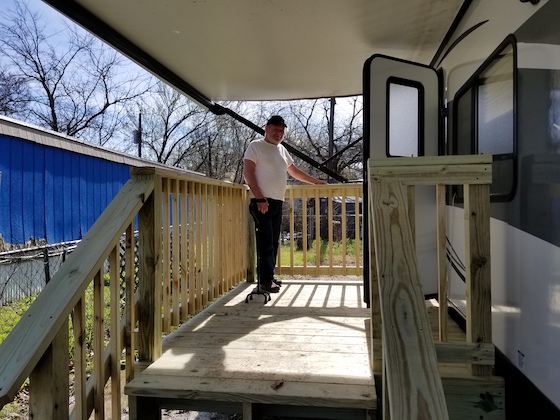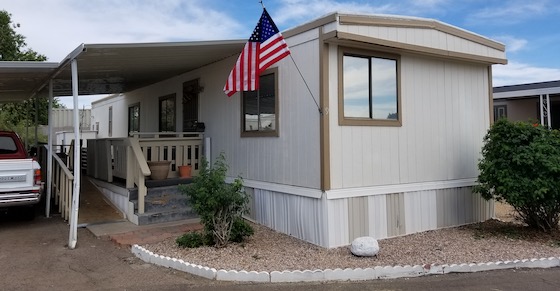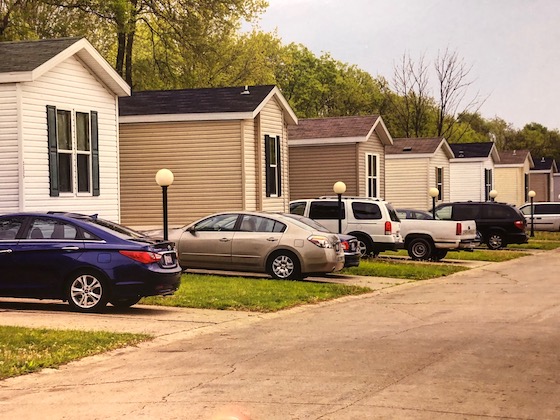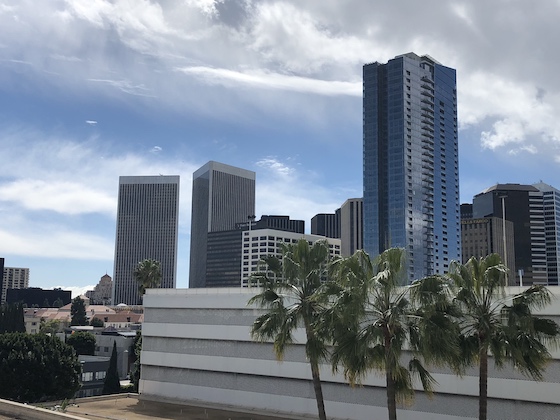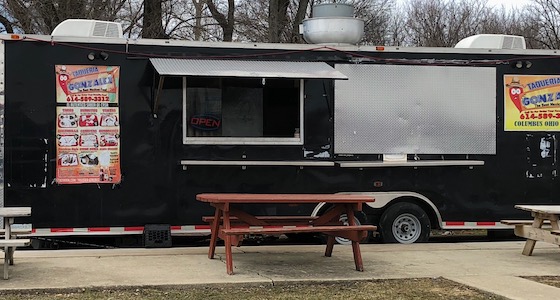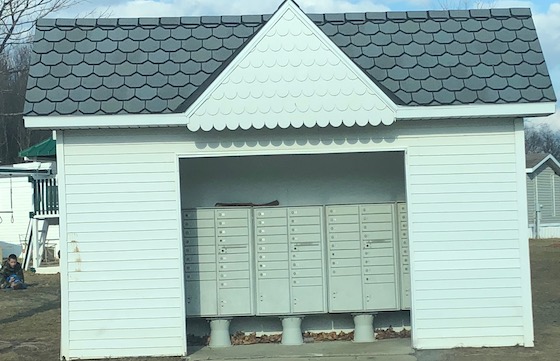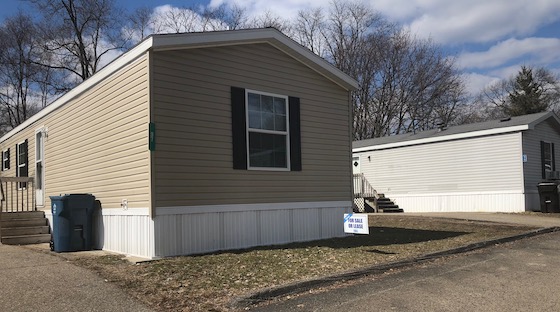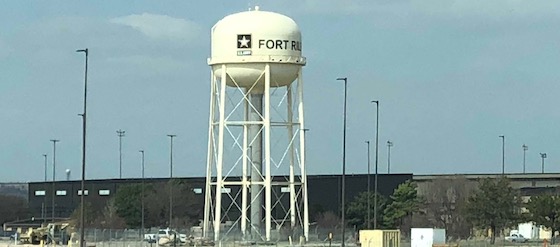For those who enjoy military strategy books, there is none better than “The Art of War” by Sun Wu, written around 2,500 years ago. This book has been a favorite of many military leaders, ranging from Douglas MacArthur to Mao Tse Tung. However, the thirteen lessons dispensed in the book can be related just as easily to business and particularly to buying and owning mobile home parks. We have been a big fan of this book since we first heard about it decades ago. The book has thirteen chapters, and here is how each one relates to our industry.
#1 PLANNING: “War has five decisive factors, which you must take into account in your planning”
Sun Wu wrote that there are five items that must be aligned correctly to win a war: 1) a moral compass 2) the weather 3) geography 4) knowledge and 5) organizational correctness. In many ways, this approach to overall analysis of engagement is similar to the requirement of great due diligence when buying a mobile home park. A careful focus must be made to the viability of the market, the condition of the infrastructure, the correctness of the numbers, the availability of debt, and the demand of the location. Great due diligence yields success, but failure to conduct diligence properly yields failure.
#2 WAGING WAR: “Only someone who understands the perils of waging war can also understand the best way of conducting it”
You must be completely educated in what you’re doing before you even consider jumping in. There is a huge amount of information available on the mobile home park industry and how to properly buy and manage these properties. Immerse yourself in it.
#3 STRATEGIC OFFENCE: “Knowing when to fight and when not to, brings victory”
This concept is more related to mobile home park management. When you own a mobile home park, you are responsible for the welfare of your community, and this means understanding what is essential for your residents to have a clean, safe, attractive place to live, as well as what imperils this mission. While a non-running car on all flats in a lot may be totally unacceptable on all levels, sometimes you need to look the other way on minor issues like a few toys in a yard. There is a difference between keeping peace and order and micro-managing. A good owner keeps his residents happy and a bad owner tries to rule through fear.
#4 DEPLOYMENT: “Whilst you are unsure of victory, defend; when you are sure of victory, attack”
You should buy a mobile home park only when you have completed exhaustive diligence and know it to be a success. Until you are completely convinced of its viability, you should not pull the trigger and risk your capital.
#5 MOMENTUM: “To make the force of your army’s attack like a grindstone crushing an egg – you must master the substantial and the insubstantial”
To quote J.W. Marriott “it’s the little things that make the big things possible”. When managing a mobile home park, it’s important to focus on the total “package” of quality of life for the residents, including rules enforcement, sense of community and a feeling of fairness and respect. The great mobile home parks have a superior feel in every aspect.
#6 THE SUBSTANTIAL AND THE INSUBSTANTIAL: “There are no constants in warfare, any more than water maintains a constant shape”
All smart mobile home park buyers have an aptitude at adaptation. Markets change, interest rates rise and fall, and you have to be able to morph your buying targets to meet the realities. For example, interest rates fell enormously after the advent of the Great Recession in 2007. This brought cap rates down substantially. Smart buyers understood that the key to hitting 20%+ cash-on-cash returns is to maintain a 3-point spread between the interest rate and the cap rate, which meant that lower cap rates were fine as long as the 3-point spread was maintained.
#7 MANUEVORS AGAINST THE ENEMY: “A ruler must understand the priorities of the local nobles before he can make profitable alliances”
This relates to the continual friction between mobile home parks and city government. The real reason that cities hate mobile home parks is that they cost them a fortune. Mobile home parks have an extremely high percentage of children, which costs the city roughly $8,000 per year per child to educate, yet bring in a notoriously low amount of property tax since the mobile homes (personal property) are often valued at only $1,000 to $5,000, and the average lot (real property) might be assessed at only $50,000 or so. In Missouri, for example, assuming an older mobile home in a park with two kids living there, the tax income would only be $550 per year ($55,000 at 1% tax rate) and the expenses to the city would be $16,000 per year (two kids at $8,000 per year each). You multiply that by 100 lots and you can see the problem. At the same time, cities are aware that they must follow real estate laws (grandfathering) and federal guidelines (it’s illegal to discriminate against the poor) so they can’t fight back effectively. When we bring a mobile home park back to life after decades of neglect, we have to remind the city of these limitations, but also appeal to their desire for a nicer community at large and the fact that we are removing an eyesore and making it into an oasis.
#8 THE NINE VARIABLES: “A reckless disregard for death will indeed result in death; too much regard for life will result in capture”
When you buy a mobile home park, there is always inherent risk. We try to avoid deals that have excessive risk, and we accomplish this with proper due diligence. But we can never fully remove risk from any mobile home park transaction. If you only invest where there is a complete absence of risk, the only options are T-Bills and perhaps CDs – but these pay an extremely low return. There is an old saying that goes “behold the turtle: it only makes progress when it sticks its neck out”.
#9 ON THE MARCH: “Never climb to join battle on high ground”
Never extend too far on any mobile home park deal. While it’s perfectly normal to buy a park at a lower cap rate with the expectation of an immediate boost in rents or reduction in costs, you would never want to pay a low cap rate with the simple expectation that cap rates will decline over time or that you can fill 100 lots with new homes when you have never tried to sell a home in the park before. Hold out for deals that have a healthy risk/reward relationship.
#10 TERRAIN: “The experienced soldier only makes a move when he is sure of his direction and only takes to the road when he is sure of his supplies”
One of the worst things a mobile home park buyer can do is to enter their search without a working knowledge of the industry, the process and the product. The mobile home park industry – while on the surface seemingly simple – actually has a huge number of variables and potential deal-killing attributes. Additionally, the buyer themselves must know their own limitations on capital and borrowing and even the amount of time they can devote to the business. Knowledge equals power in mobile home parks.
#11 THE NINE TYPES OF GROUND: “March by unexpected routes, and attack where they are not fortified against you”
To us, this represents the manner in which you find mobile home parks to buy. We are strict advocates in the necessity of volume and to get high numbers of parks to look at you have to utilize many different sources: on-line listings, direct mail, cold calls, dropping by the owner’s house, and brokers. Even then, it’s the park owners that are the hardest to find that are typically the best opportunities. When we succeed in reaching a seller who has never talked to a buyer before, that is our best chance at cutting a great deal.
#12 ATTACKING WITH FIRE: “A wise ruler thinks ahead, and a good general builds on his victories”
A common job interview question is “where do you see yourself in five years?” That’s a really good query for most park owners. Every park owner reaches a plateau ultimately, when they have exhausted their personal capital yet are seeing more good investments and have honed their management skills to a high level. So basically it’s essential to always be thinking about the future and planning accordingly. If you want to grow your portfolio, at some point you will need to take on additional capital partners. This is how the REITs began (read about Sam Zell’s thoughts on this issue in his book “Am I Being Too Subtle”), as well as all larger portfolios.
#13 USING SPIES: “Foreknowledge can be obtained from men who have accurate knowledge of the enemy’s situations”
There are many people who have advance knowledge about the mobile home park industry yet may not even be aware of that fact. One example is paving contractors, as they know which parks are going up for sale because most community owners pave their streets before putting their property on the market. Another example are state mobile home associations, who know pending legislation that can affect everything from home installation standards to licensing issues. Smart park owners compile lists of all sources of competent information and monitor this data on a continual basis.
Conclusion
“The Art of War” is a great book on strategy. Although written for the military, the concepts it contains relate to many other endeavors, including mobile home park acquisitions and management.
